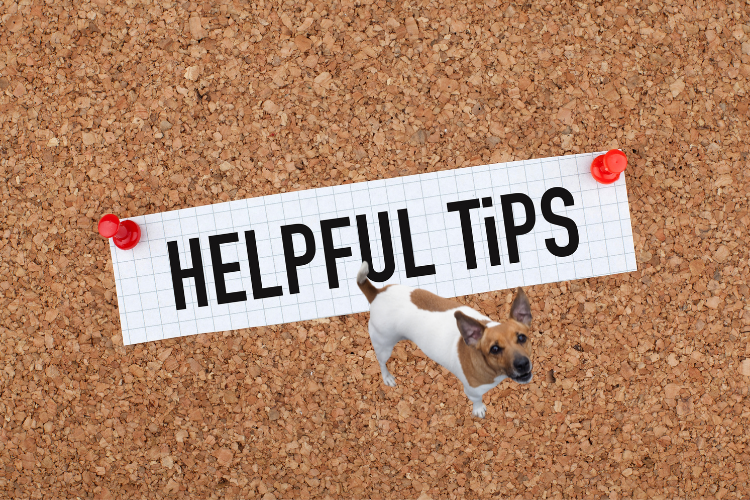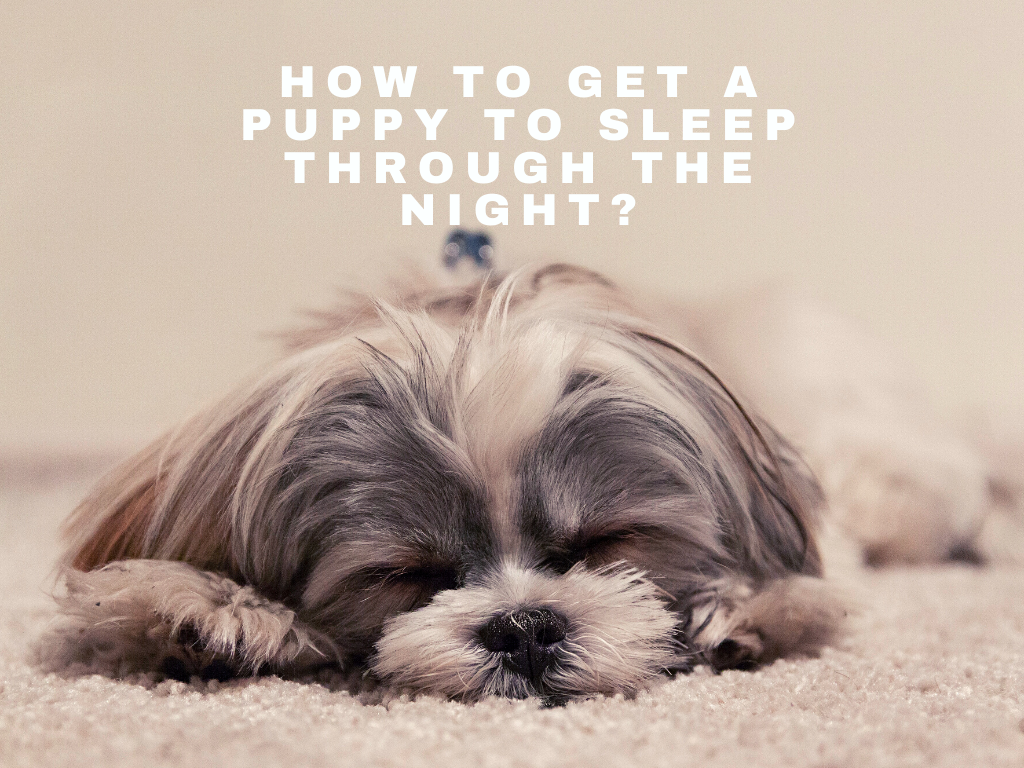Puppies are an excellent addition to any household! Nothing beats playing and snuggling all day, but what about all night? Here’s how you can help your dog and yourself get some shut-eye! You brought home a new dog, and the first day was a success! It’s bedtime, so you put your pup in their bed, turn out the lights, and go to your bed, when all of a sudden, that lovely, quiet pup bursts into a full-fledged symphony of wailing, yowling, and barking!
Is this happening to you, pup parents? It’s normal for the first few nights with a new baby or puppy to be difficult and sleepless. And, before you go any further, remember that there is no surefire method to stop your puppy from whimpering or sleeping through the night, just as there isn’t with a human infant.
Tips to Get a Puppy to Sleep Through the Night

Sleeplessness is a normal aspect of growing up! But, in the case of a puppy, there are methods to help reduce the number of restless nights and encourage your pup to feel comfortable and confident sleeping on their own! You have the option of doing the following:
1) Make a Puppy Schedule for Every Day
This is a priceless tool that you will use as your pup grows and learns their home routines. When a newborn puppy first enters a new home, they attempt to learn and adjust to their new surroundings and family. Establishing a timetable is particularly essential during toilet training, as it promotes healthy eating and sleeping habits, boosts their confidence, and helps you.
A regular schedule makes your puppy’s environment more predictable, allowing them to relax more intuitively since they know what’s coming up next.
2) Make Sure Your Puppy Gets Enough Playtime AND Naptime
Ensure your puppy’s everyday activities include enough playing and training exercise to help engage their brains and burn off some of that puppy energy! Young puppies need a LOT of sleep, about eighteen hours per day, so interspersing their playing throughout the day will help control their bursts of energy and give enough chances for them to relax.
If you see your puppy getting nippier, barking, or whiney during play, it may be an indication that they are overtired and need to sleep! When possible, try to stop playing before this happens to assist your pup in relaxing down and go asleep quicker rather than attempting to soothe them into a more exciting condition, which may be more difficult.
3) Nighttime Bathroom Breaks
Puppies are still growing and cannot use their potties for extended periods. Even though their pee frequency isn’t as high in the evening as it is during the day when they are busy, you should still schedule your dog’s nightly trips outdoors ahead of time if you have a younger pup. A good general rule of thumb is to take your puppy out before bed, then again in the dead of night, and then again first thing every morning.
Limiting water consumption a few hours before bedtime, as well as leaving your pet overnight, may help them sleep through the night!
4) Create a Bedtime Routine
When a puppy is weary enough and encouraged to relax, it will ultimately calm down. Consider using the final thirty minutes before bed to wind them down. Avoid playing games or allowing children to play with things that will keep them awake. Give them a chew toy and keep the energy around them low-key, which may entail hanging out in another area where there is less action if you have a busy family!
5) Create a Secure and Comfortable Sleep Environment
Create a secure, comfortable place for your puppy to rest and start interacting with others and relaxing. Set up this space in your house, whether you’re using a playpen or a crate, at a location where your pup will be left alone while sleeping.
We like creating a “zen room” for puppies to help set the tone for a restful night’s sleep!
Other Sleep Recommendations for Growing Puppies

For the first few weeks, the objective is to have a good night’s sleep rather than a full night’s sleep! New pups will adapt to their new home, family, and siblings. So, in the beginning, waking up to some crying, barking, or going for a bathroom break is normal and anticipated!
However, with the suggestions we’ve provided, you can begin experimenting with what works best for your dog and prolong those napping periods as your pup gets adjusted and more comfortable with their new surroundings and habits!
Here are a few additional things to keep in mind while trying to encourage your dog to sleep through the night:
1) Be matter-of-fact when you need to wake up your dog to go pee
The last thing you want is for your pup to become excited about playing again! Allow them to go pee, return them to their resting place and go back to bed yourself.
2) Try not to get angry over the puppy’s sleeping issues
It isn’t easy. We get it, and you want to be there for them. If you need to let your puppy out of their cage or playpen, wait a few seconds before letting them out. Otherwise, they will learn that making noise equals attention from you! And this will help these behaviors pass more quickly and will assist in alleviating any separation anxiety problems that may arise in the future.
3) Never feed your puppy food or drink just before night
They will need to go out if you do this, but it also raises the likelihood of potty accidents during the night.
4) When it comes to everything puppy-related, planning is essential
Expect some sleepless nights if you know you’re bringing home a new puppy. Consider talking to your employer about taking some time off during this procedure, particularly in the first few days. And, if at all possible, avoid the burden of bringing your pup out every night. Rotate the job with the other family members so that you may sleep on some evenings!
5) Equip yourself with earplugs and a white noise machine
A white noise machine can help to not only calm your dog but also to block out some of their nocturnal howls and to bark for you! Of course, earplugs may provide an additional sound barrier for you as well!
Summary: All pups face the frightening sensation of being somewhere new without their mother or littermates. It’s a process of recognizing that their new home is secure and being at ease in their new surroundings. And the length of time it takes each puppy to complete this learning period varies. Please take it in stride, stick to the plan you’ve set for each day, and be consistent so that your puppy gets used to their new nighttime sleeping pattern as soon as possible.

